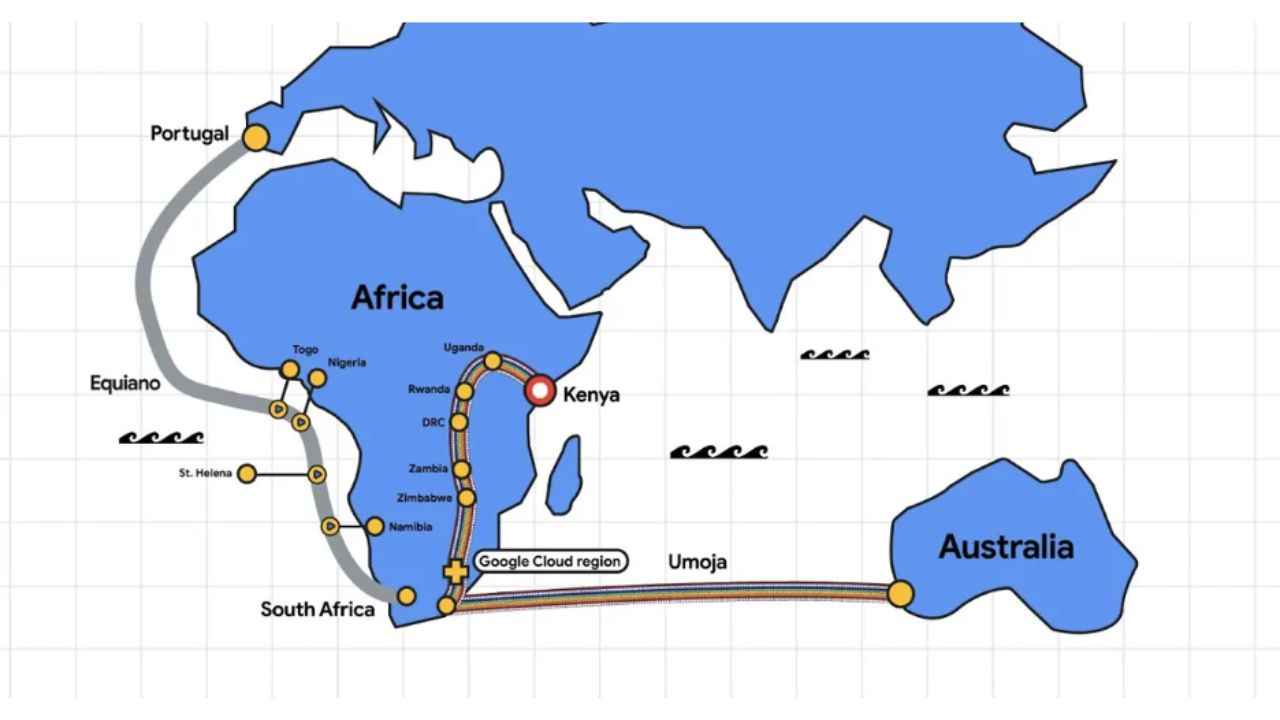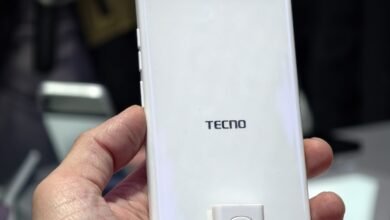Google has announced Umoja, a transformative project that has been described as the first-ever fiber optic cable directly connecting Africa and Australia. Anchored in Kenya, this groundbreaking initiative aims to revolutionize digital connectivity across the African continent and significantly enhance its linkage with the rest of the world. The announcement marks a pivotal moment in Africa’s digital transformation journey, promising to boost economic growth, enhance cybersecurity, and drive innovation across the region.
Unveiling Umoja: A New Digital Highway
Umoja, which means “unity” in Swahili, embodies the spirit of collaboration and connectivity. The cable’s route traverses several African countries, including Uganda, Rwanda, the Democratic Republic of the Congo, Zambia, Zimbabwe, and South Africa, before crossing the Indian Ocean to reach Australia. This vast terrestrial path was developed in collaboration with Liquid Technologies, ensuring a scalable and resilient network infrastructure. For the first time, landlocked countries within Africa will have direct access to a major international fiber optic cable, reducing their reliance on coastal landing sites and enhancing their digital connectivity.
Economic Impacts and Opportunities
The economic implications of the Umoja project are substantial. Enhanced digital connectivity is expected to catalyze economic activities, improve access to markets, and foster innovation. According to third-party estimates, Google’s products and services have already generated over $30 billion in economic activity across Sub-Saharan Africa between 2021 and 2023. With the new fiber optic route, these figures are poised to rise significantly, providing a robust digital backbone for businesses and governments alike.
Google’s $1 billion commitment to Africa’s digital future, of which more than $900 million has already been invested, underlines the tech giant’s confidence in the continent’s potential. This investment spans various initiatives, including support for startups, digital skills training, and the development of local tech ecosystems. The Umoja project is a critical component of this broader strategy, ensuring that the benefits of digital transformation reach even the most remote parts of Africa.
Strengthening Cybersecurity in Kenya:
In tandem with the Umoja initiative, Google has also announced an expanded cybersecurity collaboration with Kenya. This partnership aims to fortify national cybersecurity defenses, ensuring that the digital infrastructure is resilient against threats. The collaboration includes the evaluation of Google Cloud’s CyberShield solution and Mandiant expertise to bolster the defense of Kenya’s eCitizen platform. CyberShield offers governments advanced capabilities to detect and mitigate cyber threats, protect critical infrastructure, and develop robust security operations.
Kenya’s Department of Immigration & Citizen Services will benefit directly from this initiative, gaining access to cutting-edge cybersecurity tools and expertise. This move is part of a broader effort to enhance data-driven innovation, digital upskilling, and the responsible deployment of artificial intelligence (AI) for societal benefits. By investing in cybersecurity, Google is not only protecting digital infrastructure but also fostering trust and confidence in digital services.
What they said:
The announcement of the Umoja project and the cybersecurity collaboration has garnered praise from leaders across Africa and Australia. U.S. Ambassador to Kenya, Meg Whitman, highlighted the significance of the investment for Kenya’s digital transformation journey. She emphasized that reliable and resilient digital infrastructure is crucial for growing economic opportunities and that the benefits of this initiative will cascade across the region.
Kenya’s President, Dr. William S. Ruto, echoed these sentiments, describing the new intercontinental fiber optic route as a historic milestone. He noted that the project would significantly enhance Kenya’s global and regional digital infrastructure, ensuring redundancy and resilience in connectivity. This is particularly vital given recent disruptions caused by cuts to sub-sea cables. Strengthening the digital backbone will improve reliability and pave the way for increased digital inclusion, innovation, and economic opportunities for Kenyan people and businesses.
Australian Minister for Communications, Hon Michelle Rowland MP, also welcomed Google’s investment, emphasizing its role in diversifying Australia’s connectivity and supporting global digital inclusion. The project will help bridge the digital divide, ensuring that even remote regions in Africa have access to high-speed internet and the associated economic benefits.
Realising the Benefits of Digital Transformation
Google’s commitment to Africa extends beyond infrastructure projects. Since opening its first Sub-Saharan Africa office in Nairobi in 2007, Google has partnered with governments across the continent on numerous digital initiatives. These efforts include the Google Hustle Academy, a five-day bootcamp launched in 2022 to support small businesses with training in leadership, business strategy, and e-commerce. To date, the academy has helped over 3,500 small businesses in Kenya grow and thrive.
In the realm of AI, Google’s research centers in Ghana and Nairobi are at the forefront of developing solutions tailored to Africa’s unique challenges. For instance, Google has partnered with Jacaranda Health in Kenya to improve maternal health outcomes through expanded access to ultrasounds. Collaborations with Kenyan health organizations, including IntelliSOFT, Ona, and Medtronic Labs, are enhancing the interoperability of digital health solutions, ensuring better health outcomes for all.
As Google continues to invest in Africa’s digital future, the Umoja project stands as a testament to the transformative power of connectivity. By bridging the digital divide and fostering economic growth, Google is helping to create a more inclusive and prosperous future for Africa. The collaboration with Kenya on cybersecurity further strengthens this vision, ensuring that the continent’s digital infrastructure is secure and resilient.






